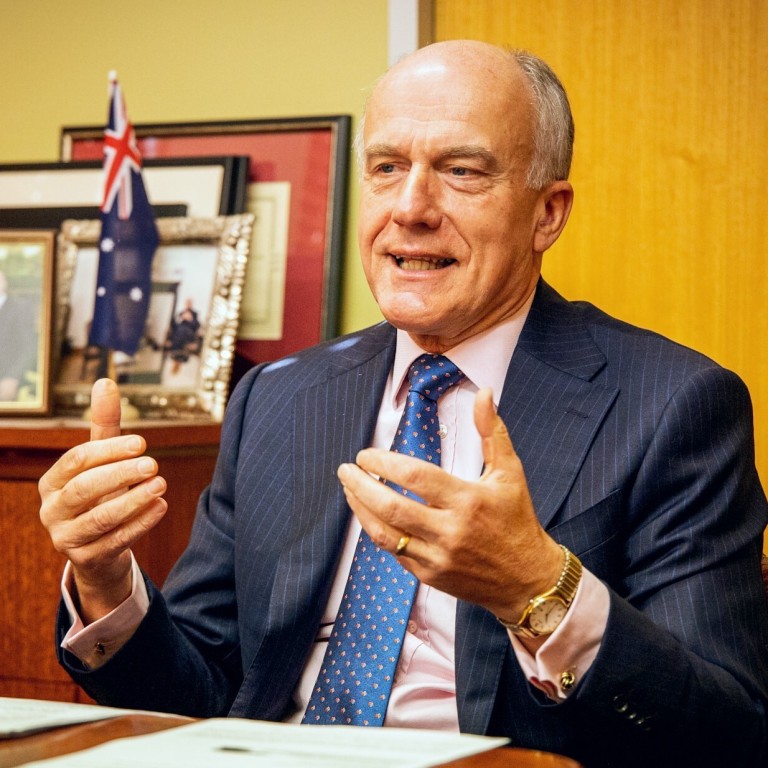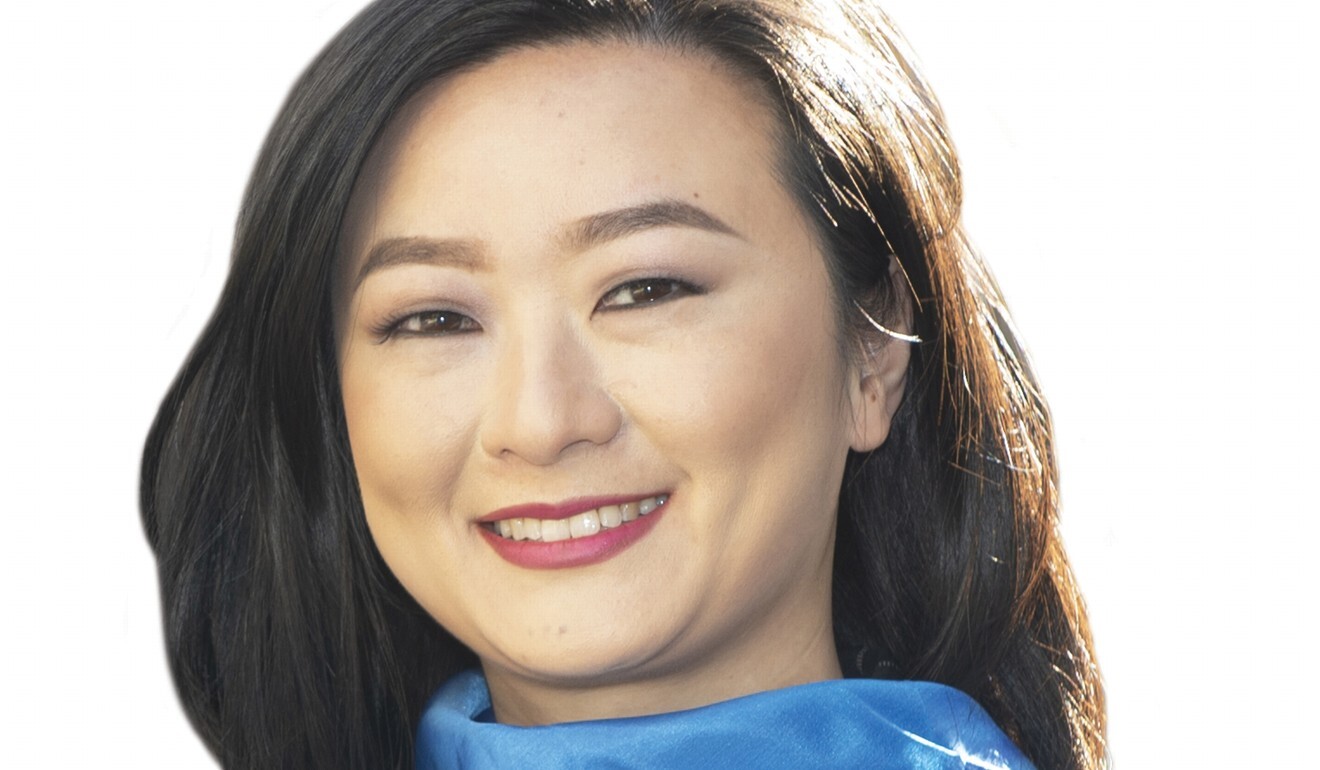
Senator insists Chinese-Australians condemn CCP at inquiry on diaspora issues, sparking backlash
- Senator Eric Abetz’s demands at the inquiry about diversity in Australia sparked accusations he was waging a ‘McCarthyist campaign’ against Chinese-Australians
- Former PM Kevin Rudd called the attack ‘repugnant’ and said the government should refrain from using race-based panic in its defence of national interests
Chau said she was looking into whether Abetz had breached a senator’s code of conduct that would warrant a public apology and censure in the senate.
“These exchanges remind me of US Senator Joseph McCarthy’s hearings into ‘un-American activities’ in the 1950s,” he told This Week in Asia.
“Abetz showed no interest in listening to these Australians’ insights about the challenges faced by ethnic minorities in our country. Instead, his attitude only illustrated these pressures more vividly,” Rudd said.

The former leader said the attempt to force the trio into making black-and-white statements could have come at a cost to their families.
“Abetz was attempting to bully these Australians into making public statements that could have undermined their chances of seeing their friends and family in China ever again,” Rudd said. “Abetz’s suggestion that Australian-Chinese should face stereotypes because German- and Italian-Australians had endured unfair accusations in the past is utterly repugnant.”
Australia must refrain from using race-based panic in its defence of national interests, Rudd added.
What is China’s trade endgame with Australia ‘painting itself into a corner’?
Acting Australian Minister for Immigration, Citizenship, Migrant Services and Multicultural Affairs Allan Tudge rubbished the accusations.
“Australia is the most successful multicultural nation in the world. There is no country on earth that has as much diversity in its population and so successfully integrates people from all backgrounds,” he said. “Claims of any campaign against any group of Australians are absurd and offensive.”

INQUIRY ON DIASPORA ENGAGEMENT
The inquiry on Wednesday was set up to investigate concerns about the participation of diaspora communities in Australia – not limited to Asian-Australians – in “Australia’s democratic and social institutions”.
Chiu’s submission provided research on the underrepresentation of Asian-Australians in politics, saying those with Chinese heritage were now unwilling to contribute.

Chiu, a research fellow at think tank Per Capita, was born in Australia. Both Chau, a Deputy Lord Mayor candidate for the City of Melbourne, and Jiang, a commentator on Australia-China relations, migrated to Australia when they were children.
During the inquiry, what started as a discussion about the need to respect diversity in Australia turned into an interrogation.
“You seem to believe that Australian politics is too white,” Abetz told Chiu. “I just want to ask you whether or not you believe in the quote from Martin Luther King that people should not be judged by the colour of the skin but by the content of their character.”
Australia accuses China of justice failure in Yang Hengjun spy case
Chiu said his submission was not about “provoking a response” but about targets.
But that response prompted Abetz to make an unrelated question about the CCP.
“Can I ask each of the three witnesses to very briefly tell me whether they are willing to unconditionally condemn the Chinese Communist Party dictatorship?” Abetz asked. “It’s not a difficult question.”

The three participants said they did not support the CCP, but that did not satisfy Abetz.
“So you can’t condemn it?” Abetz said. “There’s a difference between not supporting something and actively condemning a regime that engages in forced organ harvesting and having a million Uygurs in concentration camps, the list goes on – and all we have is this limp statement that we don’t support it.”
Australia formally names China in foreign interference investigation
Defending the rights to be treated fairly and not be asked to prove their loyalty and take sides or a certain ideology, Chau asked Abetz if he had been questioned about his links to the Nazis.
Abetz responded by describing the “trolling” he received, and then linked Italian-Australians to the Mafioso and Vietnamese-Australians to triads.
Abetz, whose great-uncle was Adolf Hitler’s ambassador in occupied France and was later convicted as a Nazi war criminal, had previously condemned the press for attempting to attack him on the basis of his ancestry. His brother, West Australian MP Peter Abetz, has twice said publicly that his great-uncle had done “positive things”.
Senator Concetta Fierravanti-Wells, who was also at the inquiry, blamed the heated debate about Chinese-Australians in politics on the “overwhelming under-desire among people from the Chinese Australian community to participate in politics”.
ASIAN-AUSTRALIANS TARGETED
Over the past few years, Asian-Australians have increasingly been cast in distrustful light by Australian media, with some publications insinuating that Chinese-Australians had links to the CCP by using photos of their attendance at community functions or pointing to their Covid-19 mask humanitarian efforts as evidence.
In June, the Australian government raided the home of New South Wales state legislator Shaoquett Moselmane over suspected links to the CCP. Moselmane has since been cleared of being involved in foreign interference efforts. Chinese journalists in Australia were also raided at the same time.
Just before that, China Matters, a think tank which supports a discussion about engagement and boasts many prominent Australian advisers, was also slurred.
During the 2019 federal election, Gladys Liu and Jennifer Yang, two Chinese-Australians who were running as candidates in the seat of Chisholm in Melbourne, were suspected of having links to the CCP.
Opinion: Is anyone safe in this fast unravelling Australia-China relationship?
“A McCarthyist streak has been evident in Australia’s discussion of China for several years now. Senator Abetz’s demands of three respected Chinese-Australians in a formal parliamentary hearing is just the latest example, albeit a particularly shocking one,” said James Laurenceson, director of the Australia-China Relations Institute. “It’s past time for political leaders from Prime Minister Scott Morrison’s government to call out this bullying behaviour.”
Jieh-Yung Lo, director of the Centre for Asian-Australian Leadership at the Australian National University, was concerned this had ramifications for all Australians.
“This is not just about Chinese-Australians. Every Australian has the right to participate in our democracy without having their Australian-ness questioned,” he said. “I certainly wouldn’t question Senator Eric Abetz’s loyalty to Australia … I’d ask him to extend the same courtesy to Chinese-Australians.”
No Australian should have their loyalty to this country questioned or undermined because of their ethnic origin
Chiu said the request for loyalty that was targeted only at Chinese-Australians was unacceptable and could further alienate the diaspora from Australian society.
“It was hurtful because it reinforces a belief that I can never truly be an Australian. That I will be forever judged by some people because of my cultural background, because of how I look – not the content of my character,” he said.
Chau condemned the race-baiting McCarthyism at the inquiry, and added that the suggestion by Senator Fierravanti-Wells that certain communities “just don’t want to participate” in democracy, was “ignorant, offensive and quite simply out of touch”.
‘The barbarians aren’t Chinese’: Australia’s foreign policy bill faces backlash
Australian Race Discrimination Commissioner Chin Tan said the treatment of people prejudicially based on race or ethnicity was contrary to Australian democratic values and fundamental rights.
“It is damaging to social harmony and community cohesion … no Australian should have their loyalty to this country questioned or undermined because of their ethnic origin, nor should they be required to prove their loyalty,” he said.
Jiang said what Abetz had done now further perpetuated the problems the inquiry sought to solve.
“One of the reasons Chinese-Australians are choosing to remain silent is because they don’t want their loyalties to be questioned constantly,” he said. “So it is extremely egregious that despite the concerns I raised, Senator Abetz chose to go down this exact road.”

